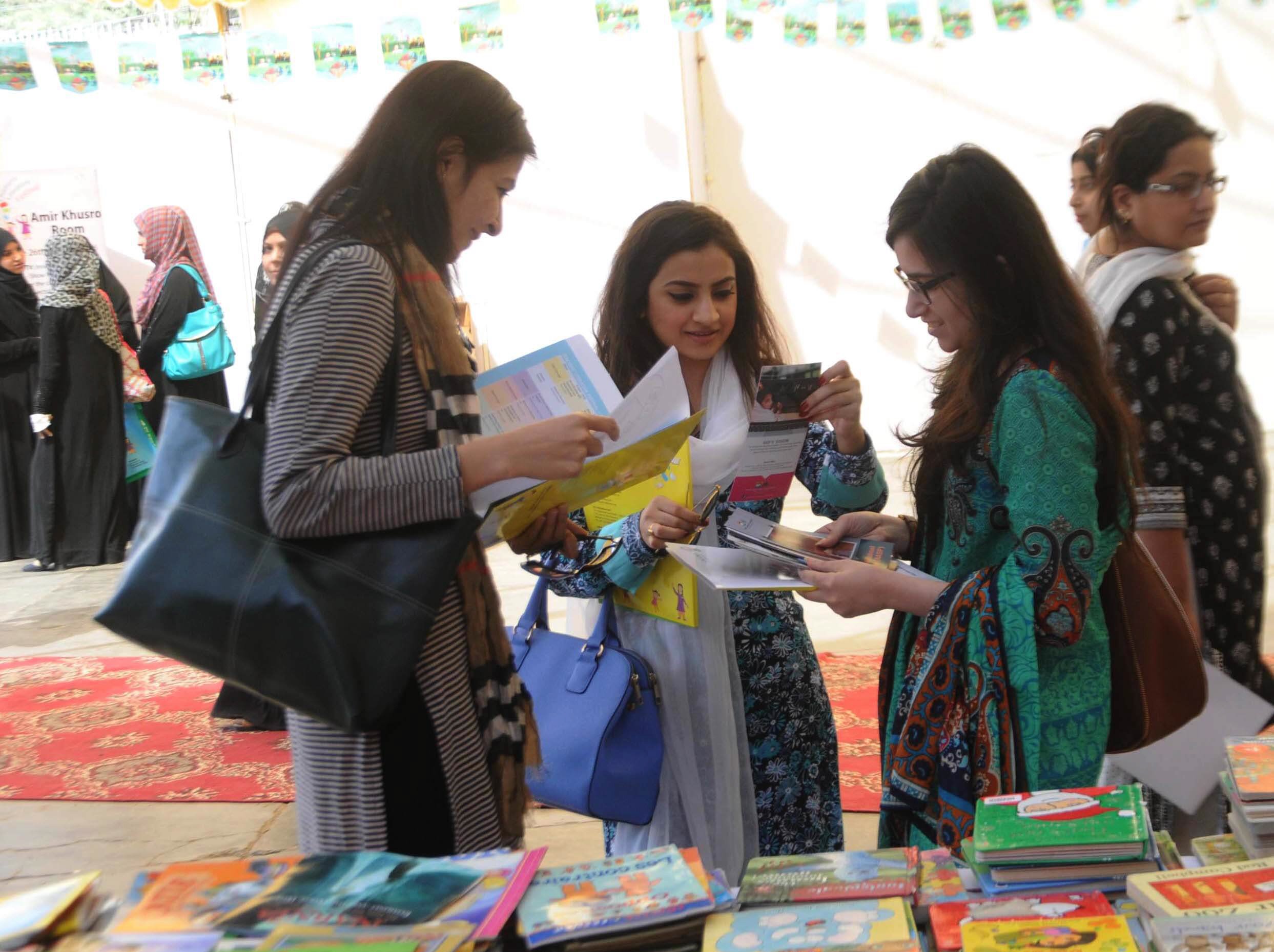
Tashfeen Malik unable to understand message of the Quran: Farhat Hashmi
It seems that bureaucrats in important places who are dealing with the terrorism-radicalisation problem had the brainwave of countering the menace through using culture. It is believed that encouraging traditional melas (festivals) at different shrines or those that generally used to take place — literary festivals and other events — could be the recipe. The calculation is that with these events — consisting of gatherings of hundreds of people — taking place without any act of terror marring them will indicate to the world how normal Pakistan is. But then this is counterterrorism and not de-radicalisation. Irrespective of whether the state achieves success on the de-radicalisation front, it must ensure the security of its citizens.
However, a more important question here is that why do people in authority think that engaging with culture will do the job. Do they actually think that festivals will deter people from blowing themselves and others up? I would like to draw their attention towards the presence of commercial theatres in almost all cities and towns of Punjab. The performances that are showcased here are a slightly refined form of mass mujras (dances). The smaller the town, the more vulgar it gets. It is a completely male-oriented show in which female presence is limited to women dancing on the stage. You will even come across mullahs, some trying to hide their beards, watching intently. This is in addition to festivals at different shrines across the province. But this does not indicate liberalism. In fact, it reflects a deep-set misogyny which feeds a particular mindset. The radical come out of such festivals radicalised rather than converted to peace. I am not arguing that dance, music and gatherings are a bad idea. But they do not necessarily provide the formula that can enable a change in how people think. Let us not forget that southern Punjab, for instance, which is otherwise known for militancy and radicalism, also has a shrine culture as well as a high incidence of prostitution and narcotics consumption. In any case, local melas never ceased during the worst times of radicalisation except in a few places, such as in Sindh. For instance, the Taliban living in that area forcibly stopped the sheedi mela at Manghopir, Karachi. Similarly, local communities were stopped from holding Eid Milad-un-Nabi celebrations in many parts of interior Sindh. But let us also not forget that even Sindhi society is rife with misogyny that in itself may not create radicalism; nevertheless, it strengthens the kind of thinking that at some stage could feed and comfort a radical mind.
Varying versions: LLF organisers upbeat despite NOC withdrawal
The state does not seem willing to engage with the problem because de-radicalisation entails a long-term strategy. Caught between a bureaucratic mindset and a political class which is primarily geared towards achieving quick election results, and donors that want to count numbers, there is no real thinking regarding changing the narrative. It’s fashionable to talk about the need for a counter-narrative without anyone spelling out what it should be. To put it shortly, any amount of counter-radicalisation will not work unless a new narrative is found with a strategic plan from which will follow tactical measures to change the mindset. For instance, how will things change if Pakistan does not consider itself a nation state with responsibility towards its own citizens rather than considering itself an imagined bastion of the Muslim ummah?
At a strategic level, the state will have to redefine itself and its goals. Should the state be in the business of defining religion? Again, at a strategic level, we will have to become a part of our own region rather than a part of Saudi Arabia. This does not mean that Muslims will cease to be Muslims, but that they will have access to the richness of their own environment that they have divorced themselves from for the last 70 years or so.
One of the issues that the state has in terms of the narrative is that of anti-Indianism. No one is debating the perceived military threat or that Kashmir is not an outstanding issue or that it is not easy co-existing with a large and ambitious neighbour. However, our anti-Indianism posits India as the Hindu other versus a Muslim Pakistan that represents the interests of the ummah. This is a narrative that has hurt Pakistan.
Of course, at a tactical level, reworking the curriculum, implementing law and order, and ensuring that no one breaks laws is a necessity. Madrassas may not be eliminated but ensuring accountability and subservience to law will prove to be the perfect antidote, not to forget revisiting Ziaul Haq’s decision to give equivalency to madrassa education. Educational and degree-awarding standards will have to be redefined. There are many other options as well. We are beyond the point where just tactical measures can help us fight a phenomenal problem.
Published in The Express Tribune, February 18th, 2016.
Like Opinion & Editorial on Facebook, follow @ETOpEd on Twitter to receive all updates on all our daily pieces.











COMMENTS (2)
Comments are moderated and generally will be posted if they are on-topic and not abusive.
For more information, please see our Comments FAQ